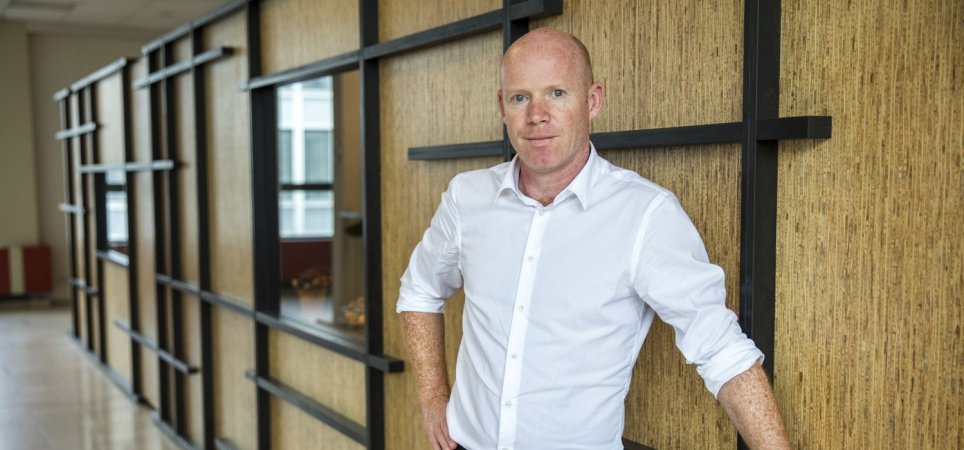'Parents who can choose, choose categorically'
Encourage the formation of broad bridging classes by limiting parents' freedom of choice. That says Eddie Denessen, professor of socio-cultural backgrounds and differentiation in education at Leiden University.

Picture: Fred van Diem
The coalition agreement states that schools must provide a 'regional network of broad bridging classes'. That idea has not yet been elaborated, but: Agree?
“Absolutely, in principle. Because if you differentiate pupils early on according to educational level - from pre-vocational secondary education to pre-university education - as we often do now, the dividing lines become sharper. Education then becomes a land of flows: pupils are placed at a level from which it is difficult for them to rise above. This is particularly annoying for students who have received less baggage from home. Those students are selected away to a lower level before they have shown what they can do.”
You say, "Basically."
“The coalition agreement does not go far enough with 'a comprehensive network'. Because parents who can choose often choose categorically. A network of broad bridging classes makes little sense if we do not limit the parents' freedom of choice. ”
And by that you mean especially highly educated parents?
“Highly educated parents want their child to do their best. And they think that this is best done in a selective one track: in a bilingual gymnasium or a VWO plus class, for example, where extra challenge is offered. In principle, there is nothing wrong with an extra challenge. But it will be if it is at the expense of children with the same predisposition who, because of their socio-economic background, need more time to emerge. ”
The coalition agreement does not want to get rid of categorical bridge classes. 'Some children are more at home there', it says.
“That will certainly be the case: there are certainly typical gymnasts and typical VMBO students. And if the goal of your education is to get the most out of every student with higher educated parents as quickly as possible, a categorical first year can serve that purpose.
But education has more purposes. Learning to interact with each other, for example. So learning to deal with students of other levels and from different backgrounds. And an important goal of education is, above all, to offer equal opportunities. After all, all of this works best in broad bridging classes. ”
That has been proven?
“In other countries, such as Canada and Finland, the students spend much longer together. And that works fine. This gives children from lower backgrounds clearly better opportunities to develop. "
I'm a moon, so I'll never be a sun
Differentiation starts in primary school in the Netherlands, right?
"Sure. On the bulletin board in my study is a note from a mother who writes that her son has nightmares because he is not 'sunshine'. In his class they use Learn to read safely, which teachers use to divide their students into suns, moons and stars. This student was just a 'moon': a student with a normal reading level. And he was very sad about that. This does indicate that students sometimes experience differentiation differently than we estimate, despite all our good intentions. ”
Don't differentiate anymore?
“I am not necessarily against differentiation. We just have to keep paying attention to how we deal with it. Placing students in a separate stream can lead to a self-fulfilling prophecy. Then a student may think: I am a moon, so I will never be a sun. On the other hand, as a teacher you would like to differentiate, so that you appeal to students at different levels. After all, with full classroom education you always only reach a part of the children. "
As a teacher, how do you deal with that contradiction?
“For example, you can let the students change groups, so that they are not always in the same club. Create motivation or interest groups, in which you put students together who share an interest in a particular topic. A lot of variation is good: every educational form has advantages and disadvantages and if you always use the same form, you always have the same disadvantages.
Back to secondary education. What can teachers do there?
“Teachers are stuck. Because the government has two policy initiatives in primary and secondary education. On the one hand, there is the stimulation of top talents, in which extra attention is requested for fast learners. On the other hand, there is the promotion of equal opportunities. That doesn't go together. Either you give extra attention to a small group of pioneers, or you give extra attention to students who have received less from home - and who are therefore more dependent on school. You can't give everyone extra attention at the same time.”
There is a race going on for the best marks and the highest diplomas'
How should education deal with this?
“There is no ready-made answer to that. Let's start by putting less pressure on performance as a society. Because the race for the best social positions is currently leading to a race for grades and diplomas. As a result of which higher educated parents do everything in their power to let their children score as high as possible. And that is mainly at the expense of the performance of children with a different socio-economic background. Anyway, that lower performance pressure may be utopian. ”
As a teacher, can you do something yourself, in your classroom?
“Always ask yourself what the consequences are of the differentiation you apply. Do you expect the same from everyone, or do you already secretly take the backgrounds of the students into account? Keep questioning yourself critically. A lot of differentiation happens unconsciously and unintentionally. Awareness is the first step. ”
This article was published in the Education Journal of January 2018.


